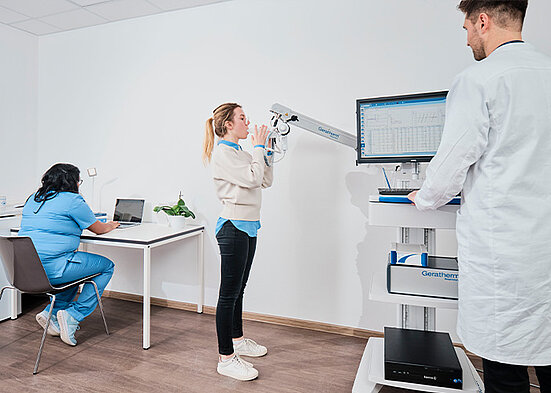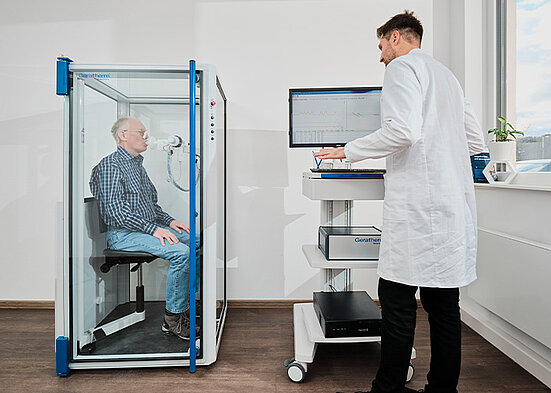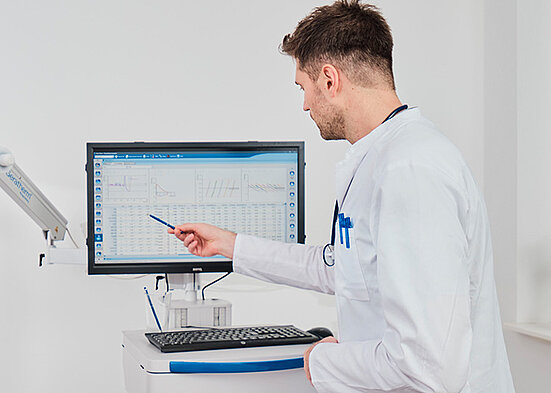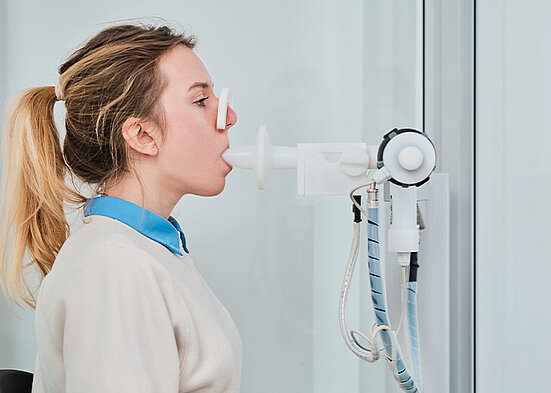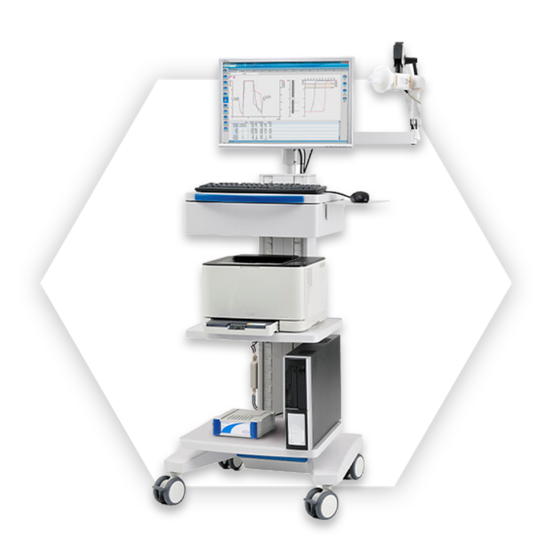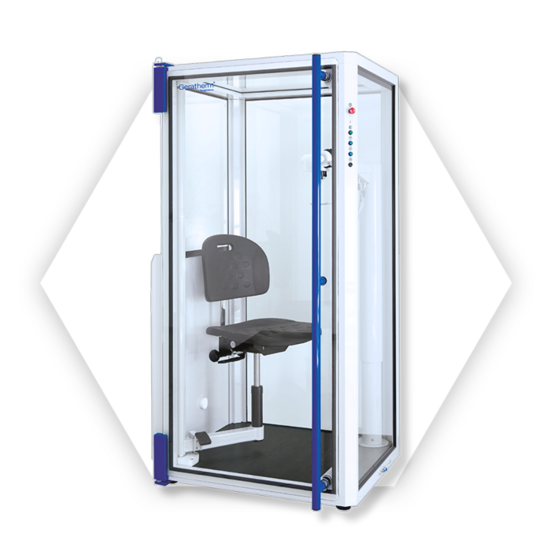
Both Geratherm Respiratory PFT devices utilize the powerful BLUE CHERRY® diagnostic software platform, enabling PFT in compliance with the latest ATS/ERS guidelines. Integrated quality control and interpretation tools ensure the validity of test results and support daily workflows. A robust report configuration feature allows customizable reports, presenting all relevant information in the desired format to meet team preferences. BLUE CHERRY® is scalable, supporting everything from single workstation setups to complex network installations across multiple labs.
